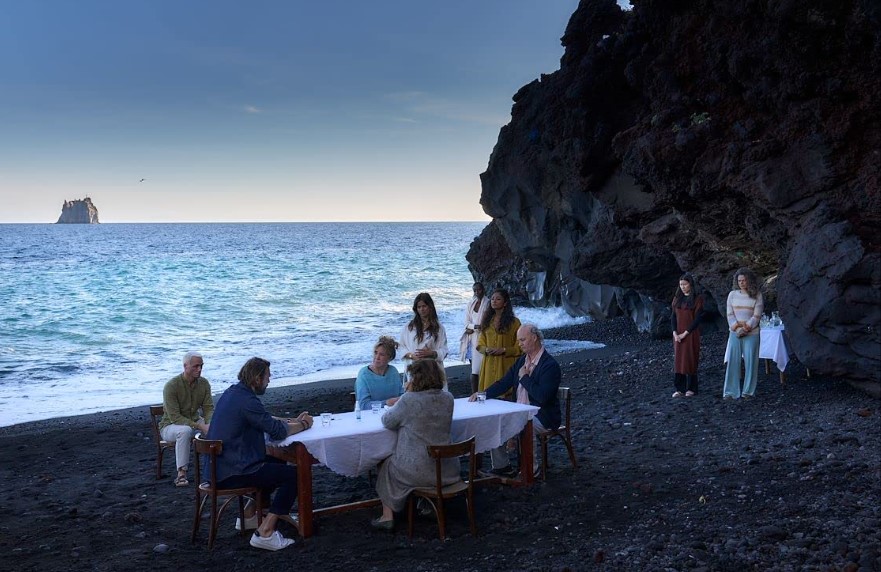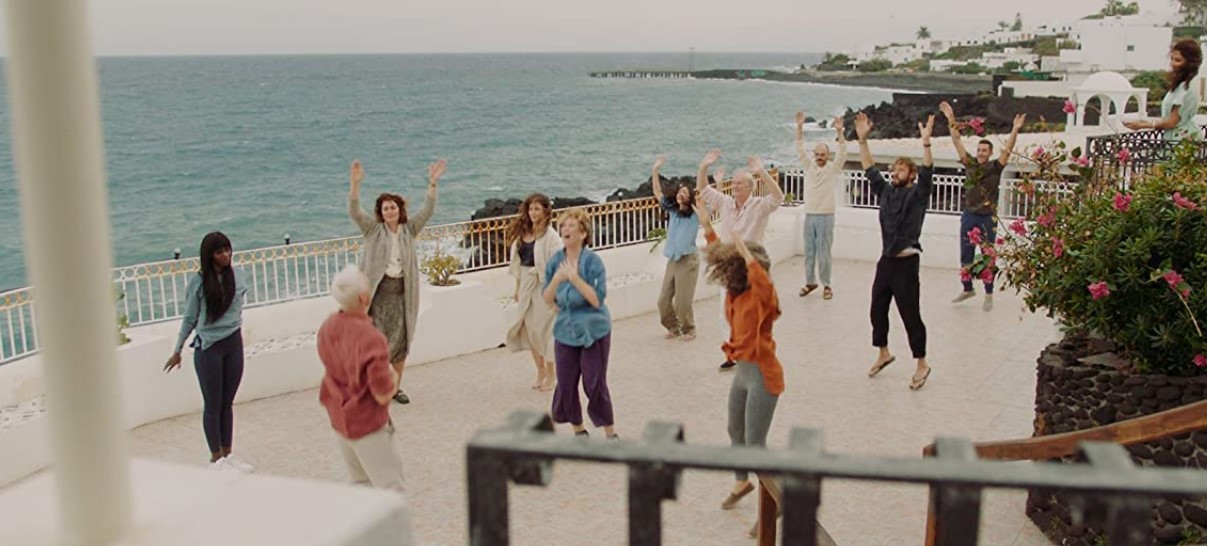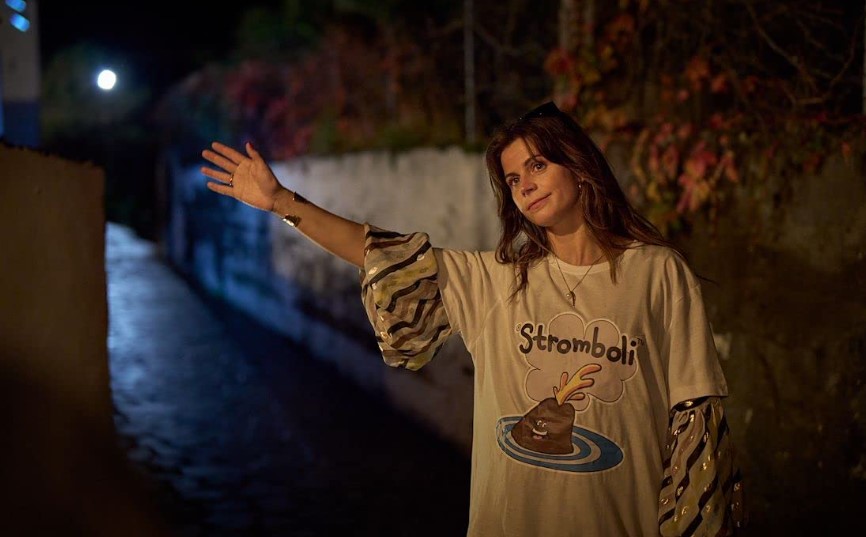Directed by Michiel van Erp, Netflix’s ‘Stromboli’ (2022) tells the story of Sara (Elise Schaap), a recently-divorced woman who arrives at the eponymous volcanic island. She feels directionless in life and is perpetually drunk. After losing her money and phone, she trashes the house she was renting and is thrown out of there. Feeling hungry and sleep-deprived, she ends up in a church, where she encounters a man named Jens (Christian Hillborg). After learning that Sara has nowhere else to go, Jens takes her to the From Fear to Love Retreat he is part of. Although initially confused and dismissive about the things happening around her at the retreat, Sara soon begins her journey toward healing by introspecting her past and present.
The narrative of ‘Stromboli’ is quiet and impactful and encourages its audience to face the pain and trauma in their own lives. If that has made you wonder whether ‘Stromboli’ is based on actual events, we got you covered.
Stromboli’s Semi-Autobiographical Origins
Yes, ‘Stromboli’ is based on a true story, though only partially. Van Erp developed the film from a script by Roos Ouwehand and Paula van der Oest, who adapted the screenplay from Dutch author Saskia Noort’s 2018 semi-autobiographical book of the same name. Primarily known as a crime thriller novelist, ‘Stromboli’ marks Noort’s foray into memoir and traditional writing.

In Noort’s book, Sara is a journalist and writer who seemingly has a perfect life with her husband and two children. But that projection eventually shatters when she walks out of her marriage because of her husband’s alcoholism and her struggles with her past horrors — Sara was raped when she was a teenager. After the separation, Sara soon finds herself alienated by her friends and neighbors. These are some of the aspects that Noort drew from her own life, including the rape.
“I hesitated writing about my youth experience,” the author said in an interview. “I thought: everyone will then say I did so out of commercial interest. But that’s total c**p.” Despite the autobiographical aspects of the story, Noort asserts that her book is largely fictional. “The man leaving Sara was not my husband,” she said. “I’ve had to point that out to my children. And I will tell others the same: this is not a carbon copy of you, or me. “
Noort continued, “I have sharpened events a bit and mixed them with stories about others. But a part of the things I have struggled with are certainly in there. Such as the prolonged silence towards my husband and parents. I was afraid to hurt them; many people consider a rape to be about them. In the case of my father and mother, I decided for them that they would feel guilty and wonder how they could have prevented it. I was afraid they would drag me to the police, or attack the perpetrator.”
In an interview with Het Parool, van Erp revealed that he saw the movie with Noort, and they both ended up crying. One key difference between the book and the film is that Sara’s time at the From Fear to Love Retreat appears in the last section of the novel, whereas it makes up most of the narrative in the film, as that was what initially drew in the filmmaker. “It is a world that I have followed a lot in my documentary work,” he said. “I have experienced and filmed everything from healing courses to men who lost their manhood. It is often funny, but also poignant, and above all very brave. I find it very moving how far people sometimes go to solve their problems.”

So, to sum it all up, ‘Stromboli’ is based on a true story and has a significant amount of autobiographical elements, but these elements underwent a fictionalization process at least twice — once when Noort wrote about them and a second time when Noort’s book was turned into a film.
Read More: Where Was Netflix’s Stromboli Filmed?


You must be logged in to post a comment.